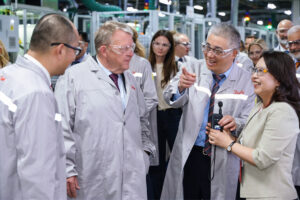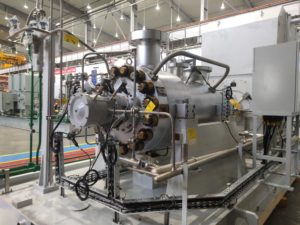Flow Control and Treatment Companies Will Be Unevenly Impacted by the Chinese Slowdown and Oil Price Drop
The flow control and treatment market will grow by 2 percent in 2016 to $340 billion. In general small Asian suppliers will achieve the highest percentage growth. The performance of the large international companies will be mixed. McIlvaine is analyzing each of the larger companies to compare their forecasts to the world market trends.

Flow Control and Treatment Companies Will Be Unevenly Impacted by the Chinese Slowdown and Oil Price Drop (Image: McIlvaine Company)
Clarcor will join many other international flow control and treatment companies who will experience revenue losses in 2016 while the world market increases modestly. The strength of Clarcor is that a large percentage of the sales come from consumables rather than capital equipment. The weakness is the low market shares in Asia and certain other geographies where growth will exceed the average.
Clarcor anticipates revenues falling by approximately 2 percent in 2016 based on revenues of $1.4 billion.
Mobile filtration revenues will be up worldwide by 4 percent as more vehicles are driven more miles. The primary growth will be in Asia. The poor quality of ambient air in Asian countries and the need for air filters in homes and commercial buildings will help boost stationary air filtration sales by 4 percent.
The stationary liquid filtration sales will be down only modestly due to the high percentage of consumables in the mix. Oil production will be up in 2016 even if the capital expenditures for new equipment will be down substantially. Companies such as Clarcor who sell replacement filters will benefit.
Two of the major unknowns and concerns in 2016 are the price of oil and gas and the status of the Chinese economy. Neither one of these should have a substantial impact on Clarcor sales due to its mix of products.
The growth in LNG production in the U.S. is a positive factor for Clarcor. Clarcor expects sales of gas turbine inlet filters to remain flat in 2016 but the world market will be up by more than 5 percent. This is a combination of increased power generation but also increases in unit selling prices. High efficiency filters selling at twice the price of existing medium efficiency filters can be justified based on improvements in gas turbine operations.
A number of power plants around the world are converting their particulate control technology from electrostatic precipitators to fabric filters. This could boost filter sales by more than 20 percent per year when the movement is fully implemented. The challenge for the BHA group within Clarcor will be to achieve high market shares in countries such as China, Russia, Chile and Italy where these conversions are presently taking place.
Source: The McIlvaine Company






